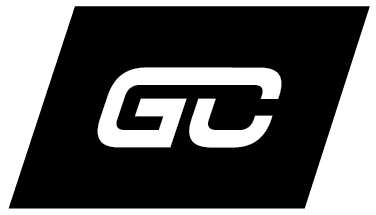ATHLETE DEVELOPMENT VS. PLAYER DEVELOPMENT: THE DISTINCTION
DRIVING PERFORMANCE TODAY BY CARING ABOUT TOMORROW
Athlete development versus player development can be a source of confusion within the sport community. Player development is typically described as the process of making athletes more skilled within their specific sport domain. In a hockey context this could include skating faster, shooting harder and/or stickhandling better.
Athlete development on the other hand, seeks to address the development of the entire athlete as a person. The objective with athlete development is to not only better prepare the individual athlete to compete but also assist the athlete in addressing the other areas of his life which can impact athletic performance and personal self-efficacy.
The best programs athlete development strive to assist athletes in reaching their full potential as a human beings but understand the absolutely critical nature of achieving optimal athletic performance. Ignoring the importance of performance in designing an athlete development initiative is akin to dropping a tercel engine into a Ferrari Spyder, the car may look great but it won’t go anywhere. What elite or professional athlete won’t care if the time they are investing into a particular activity is potentially going to positively impact their performance or sport career?
This is critical for several reasons. Players may perceive that coaches, GM’s and advisors want athletes to focus on their sport to the exclusion of everything else. Whether this perception is accurate or not is irrelevant. This perception forces athletes to double down on their identity as an athlete. The more closely an athlete identifies exclusively with their ‘athletic identity’ the more difficult it is to engage the athlete in exploring other interests and the greater the likelihood that transitioning from sport will be a challenge. This phenomenon is not uncommon and has been well researched in athletes. It has also been identified in entrepreneurs who sell their firms or individuals who leave the military.
Sports organizations, through the creation of athlete development programs, are seeking opportunities to help athletes diversify their athletic identity while they are still in the competing. The process of doing this while active can help prevent athletes from having their identities completely fracture upon their departure from sport. The more diversified that individuals identity the more likely the athlete will be open to exploring other opportunities beyond sport. Research shows that athletes with more fragmented athletic identities are less likely to report major challenges in transitioning from sport. There is also evidence that active athletes with a high athletic identity scores are prone to performance swings, inconsistency and are more likely to be negatively impacted by stress.
But that is only a small portion of the story. The process of fragmenting an athlete’s identity while they are actively playing in sport (professional or otherwise) is actually a tool to enhance performance today. Players who possess an identity that is not completely based on who they are as athletes have a greater ability to adapt to challenges outside of the sport domain are going to be more consistent, less stressed, more resourceful and ultimately more successful athletes.
Organizations should understand that athlete development initiatives are not exclusively about preparing athletes for some unknown time in the future. Make no mistake, these programs are about wins and losses and optimizing for long-term athletic success and performance. We believe the number one priority of an athlete is their professional athletic career. Any development initiative should be designed to enhance the players career and the success of organization that is offering it.
Game Change was founded in 2011 to serve and enhance the athlete development needs of major professional and elite sport organizations and athletes. Game Change specializes in customized research and assessment services, the development of applied interventions and resources designed to provide long-term positive outcomes for organizations and individual athletes. Game Change believes strongly in sport as a catalyst for societal change and adheres to the philosophy of ‘changing the world one athlete at a time’.

